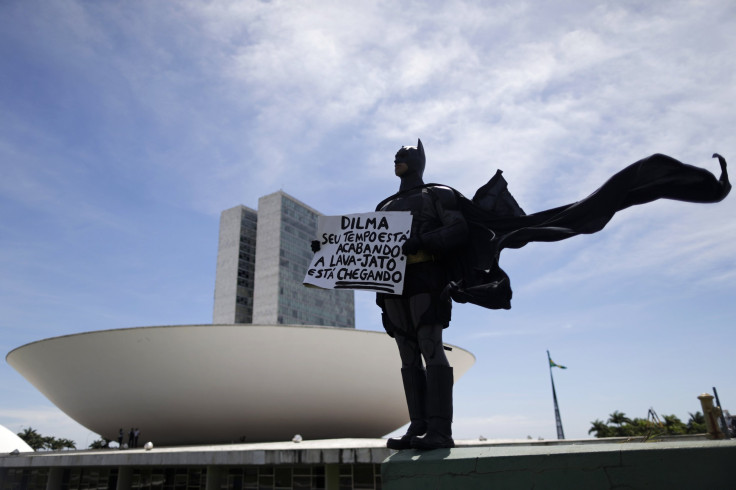
In the America, the Supreme Court protected campaign contributions as free speech, overturning campaign finance reform laws. In Brazil, the country’s top court has just done the opposite. In an 8 to 3 decision , the Supreme Federal Tribunal (STF by its Portuguese initials) overturned a law that allowed Brazilian companies to donate up to 2 percent of their revenue. The ruling is set to take effect ahead of the local elections slated for 2016, EFE reports, paving the way for an election in which cash can’t be used as speech or to curry corporate favors.
"The influence of economic power culminates by turning the electoral process into a political game of marked cards, an odious pantomime that turns the voter into a puppet, crumbling in one blow citizenship and democracy," said Justice Rosa Weber in explaing her vote, according to DW.com.
The decision comes as Brazil confronts the largest corruption scandal in its history, the Lava Jato (carwash) scheme which in which top politicians and the country’s state-run oil producer Petrobras are implicated.
The heart of that corporate cash contributions are not private donors or ideological lobbying groups, but construction and engineering firms bent on getting contracts.
In the Lava Jato case, at least 2 billion dollars in illicit campaign money was doled out over a decade, according to Brazilian prosecutors cited by the AP .
The resulting political scandal along with a major slump in the economy has driven approval of President Dilma Rousseff into single digits.
As the nation grapples with corruption that has tarnished top political parties, the Brazilian congress is about to vote for a new campaign finance reform bill. However, the bill is so weak that it would do more to reverse rather than tighten the rules established by the federal court.
Therefore, the ruling may give Ms. Rouseff ammunition to stand against corruption by vetoing the bill. She has already stated a position against corporate campaign contributions. On Thursday, president issued a statement touting her administrations actions against political corruption, without referencing the case considered by the STF.
Not all Brazilians agree that banning corporate campaign contributions is a good idea, and some argue that the move could result in a power grab for Rousseff's ruling Workers Party (PT).
“The decision of the Supreme Federal Tribunal incentivizes a [backdoor] for corporate interests,” writes Felipe Moura, a conservative blogger for Veja , who compared the move to a ban on guns. “The problem is illegal guns in the hands of criminals, but PT wants to prohibit legal guns in the hands of citizens.”
Others argue that the changes mandated by the STF will come into effect too quickly.
“The big problem, that’s going to be in a grey area, are the elections of 2016. For the elections in 2018 there will be time to figure it all out. But the 2016 elections will rest in limbo,” Chamber of Deputies president Eduardo Cunha, who is not a PT member, told Exame.
© 2025 Latin Times. All rights reserved. Do not reproduce without permission.




